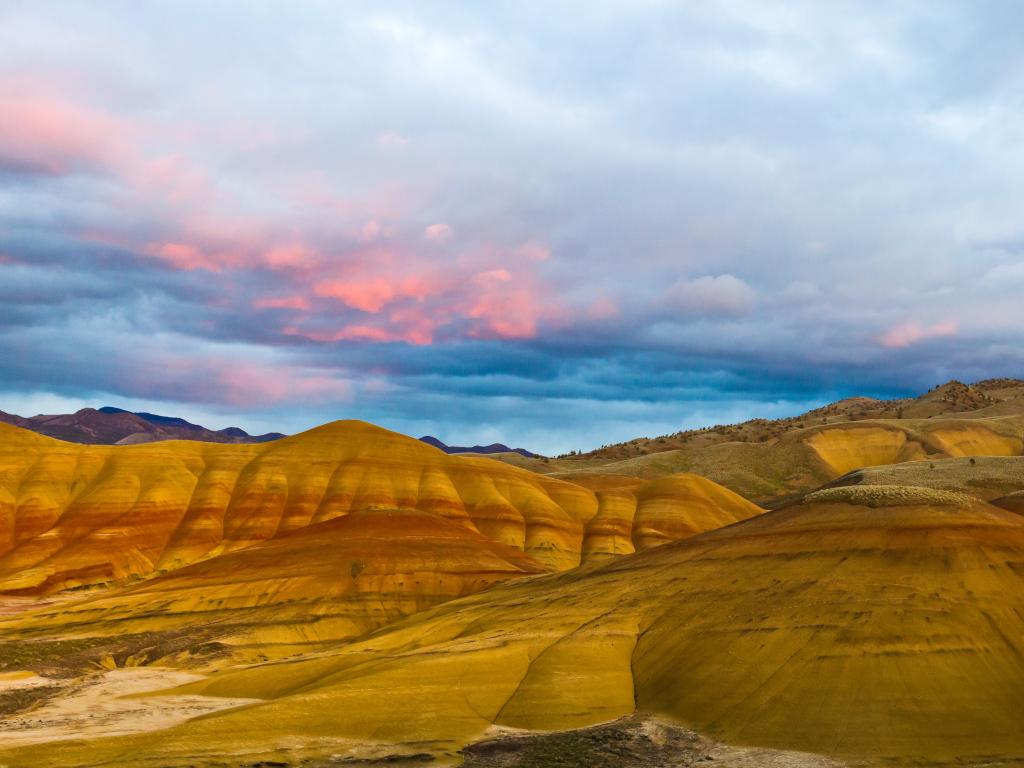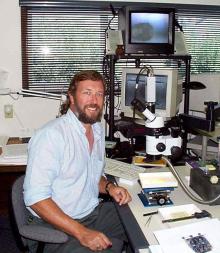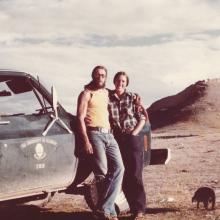
Paleontologist Ted Fremd, University of Oregon-affiliated research associate in the Department of Earth Sciences and adjunct curator for the Museum of Natural and Cultural History, was named to the 2023 class of fellows by the American Association for the Advancement of Science. The retired head paleontologist at the John Day Fossil Beds National Monument and a former National Park Service employee, Fremd joins 502 other newly elected members whose work has distinguished them in the science community and beyond.

“This is excellent recognition of the decades of work Ted has done in support of Cenozoic paleontology, of science in the National Parks, and of the fossil record of Oregon in particular,” said Samantha Hopkins, Earth Sciences professor and department head. “Ted has supported so many scientists across the spectrum of career stages. His own work formed the framework for everything hundreds of other paleontologists did using the data from the John Day record, and he advocated across the Park Service for other parks to do the same with the resources they had at their disposal.”
During his career, Fremd named a new species of fossil (the very last primate to exist in North America, dying out about 28 million years ago), established a detailed and age-dated chronology of fossil animals and plants in the John Day Basin, and called attention to overlooked fossil localities in numerous remote places in the northwestern US. Additionally, five different fossil species have been named in honor of him.
But he’s most proud of his work at the fossil beds and its impact on the public’s understanding plant and animal evolution, changing climate, and the region’s ecosystems in the past 40 million years.
“Forty years ago, I began work at John Day Fossil Beds National Monument with the goals of unravelling a very complex biostratigraphy and establishing a research center,” Fremd said, which he saw come to fruition in 2005. “The Thomas Condon Paleontology Center in eastern central Oregon has a large collection of significant fossil assemblages for research and appreciation by the public.”

In 2017, Fremd received the Morris F. Skinner Award from the Society of Vertebrate Paleontology for his contributions to scientific knowledge through the making of important collections of fossil vertebrates.
Fremd is the only paleontologist ever to serve as a regional science advisor to the National Park Service; during his tenure he has helped define the standards and practices for the collection of vertebrate fossils on public lands.
Fremd lives in the John Day Basin of central Oregon with his wife of more than 50 years, Skylar, a zoologist who works with northern goshawks.
— By Kelley Christensen, Office of the Vice President for Research and Innovation
